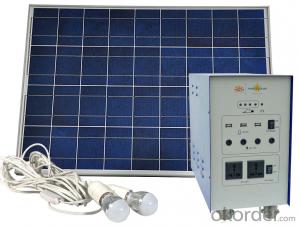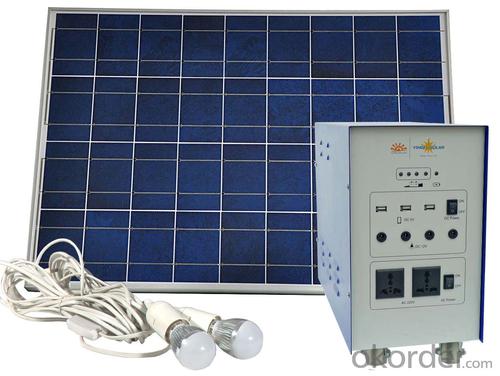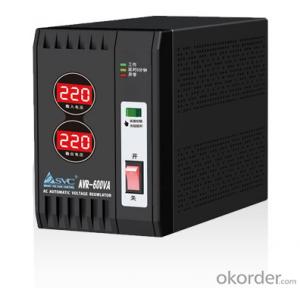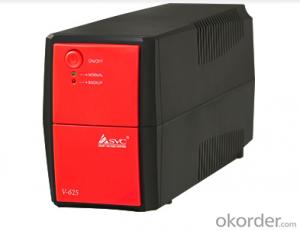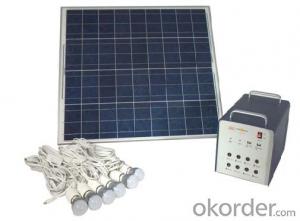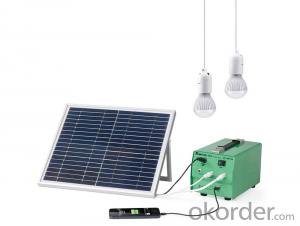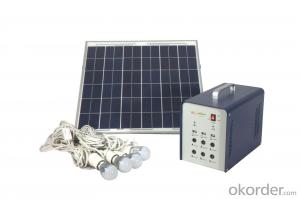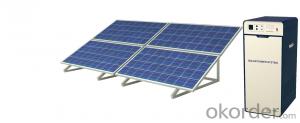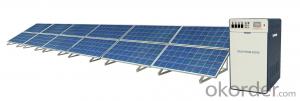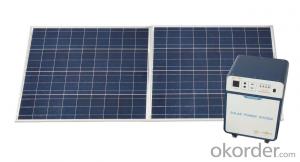Chennai Solar Energy Systems - Home Off-Grid Solar Power System DC Lighting JS-SPS-600C
- Loading Port:
- Tianjin
- Payment Terms:
- TT OR LC
- Min Order Qty:
- 10 set
- Supply Capability:
- 10000 set/month
OKorder Service Pledge
Quality Product, Order Online Tracking, Timely Delivery
OKorder Financial Service
Credit Rating, Credit Services, Credit Purchasing
You Might Also Like
Off-grid Solar Power System
General Introduction
Solar power system provides alternating current and direct current, which is produced by the modules transforming solar power into power, to home lighting, household appliance and other DC appliance, such as cell phone and laptop.
Solar power system is widely used in area lack of power, for example house power supplying, monitoring, communication base, fire prevention in forest area, pasture and meadow, aquaculture etc.
We are dedicated to provide high quality off-grid PV products and systems to customers and has received a series of certificate, including ISO9001, TUV, UL, CE, CQC and RoHS.
Solar DC Lighting System
Multiple protection system, safe and reliable performance.
Integrated and portable design, easy operation.
DC5V, DC12V, AC220V output, wide range application.
Clean engergy, cycle use.
General Introduction
Solar power system provides alternating current and direct current, which is produced by the modules transforming solar power into power, to home lighting, household appliance and other DC appliance, such as cell phone and laptop.
Solar power system is widely used in area lack of power, for example house power supplying, monitoring, communication base, fire prevention in forest area, pasture and meadow, aquaculture etc.
We are dedicated to provide high quality off-grid PV products and systems to customers and has received a series of certificate, including ISO9001, TUV, UL, CE, CQC and RoHS.
Solar DC Lighting System
Multiple protection system, safe and reliable performance.
Integrated and portable design, easy operation.
DC5V, DC12V, AC220V output, wide range application.
Clean engergy, cycle use.
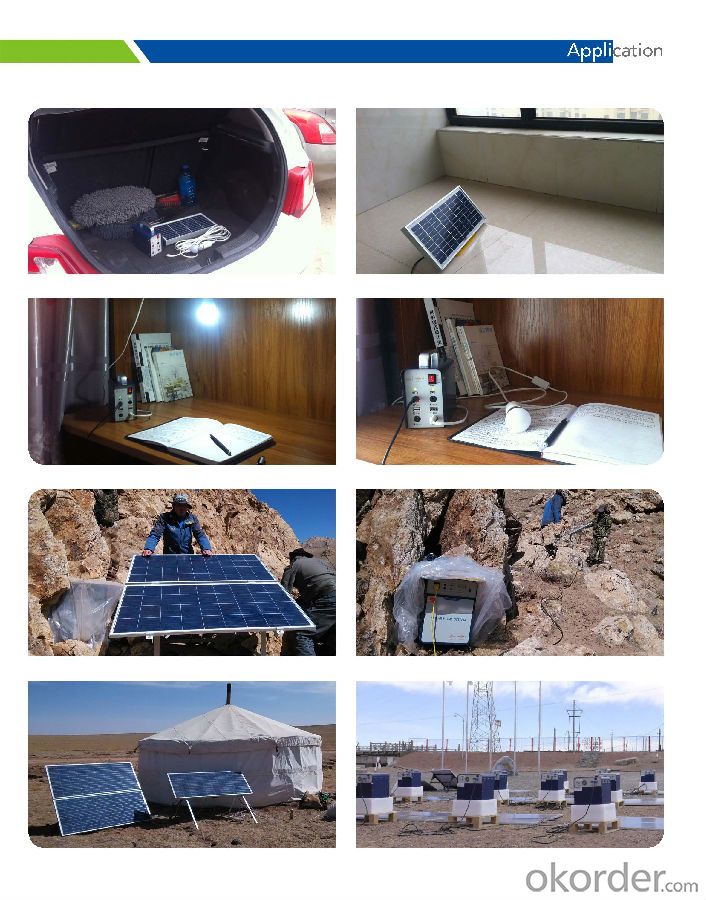
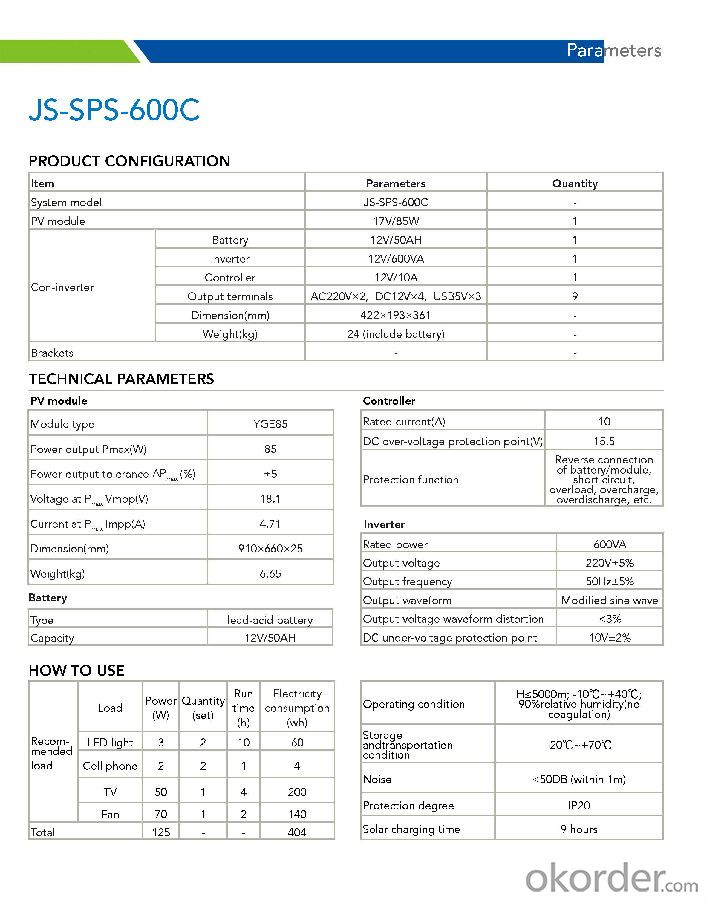

- Q: What is the impact of temperature fluctuations on the performance of solar panels?
- Temperature fluctuations can have a significant impact on the performance of solar panels. High temperatures can cause a decrease in the efficiency of solar panels, leading to a decrease in power output. This is because increased temperatures can lead to an increase in the resistance of the materials used in the solar panels, resulting in more energy loss. On the other hand, low temperatures can improve the conductivity of the materials, leading to a slight increase in performance. However, extreme temperature fluctuations can also cause stress on the materials, potentially affecting the lifespan and durability of the solar panels. Overall, maintaining a moderate and stable temperature is crucial for optimizing the performance and longevity of solar panels.
- Q: What is the role of a solar energy system installer?
- The role of a solar energy system installer is to design, install, and maintain solar energy systems for residential, commercial, and industrial buildings. They play a crucial role in the transition towards renewable energy sources and are responsible for ensuring that solar panels are properly installed and functioning efficiently. Firstly, a solar energy system installer evaluates the site where the solar panels will be installed. They assess factors such as the location, orientation, and shading of the site to determine the optimal design and placement of the panels. This involves conducting a thorough analysis of the site's solar potential and considering any potential obstacles that may affect the system's performance. Once the design is finalized, the installer procures the necessary equipment and materials required for the installation. This includes solar panels, inverters, mounting systems, and electrical components. They also ensure compliance with local building codes and regulations. The installation process involves mounting the solar panels on rooftops or on the ground, connecting them to the electrical system of the building, and wiring them to the inverters. Installers must have a strong understanding of electrical systems to ensure safe and efficient connection of the solar panels. After the installation, solar energy system installers conduct thorough testing and commissioning to ensure that the system is functioning properly. This includes checking the electrical connections, monitoring system performance, and troubleshooting any issues that may arise. In addition to installation, solar energy system installers are also responsible for providing maintenance and repair services. They perform regular inspections, clean the panels, and replace any damaged or faulty components to ensure optimal performance and longevity of the system. They may also assist with system upgrades or expansions as needed. Overall, the role of a solar energy system installer is crucial in promoting the adoption of renewable energy. They are responsible for the successful installation and maintenance of solar energy systems, enabling individuals and businesses to reduce their reliance on fossil fuels and contribute to a more sustainable future.
- Q: Are there any fire safety concerns associated with solar energy systems?
- Solar energy systems have been found to have fire safety concerns. Although they are generally considered safe and reliable, there have been instances where these systems have caused fires. One concern regarding fire safety is associated with the improper installation or maintenance of solar panels. If the panels are not installed correctly, there is a possibility of electrical faults or short circuits, which can lead to overheating and potentially result in fires. Similarly, if the system is not regularly inspected and maintained, it can increase the likelihood of electrical failures and subsequent fires. Another concern is related to the electrical wiring and connections of the solar energy system. Faulty wiring or loose connections can generate heat and potentially cause electrical fires. This is particularly relevant in older systems where the wiring may have deteriorated over time. Furthermore, firefighters may encounter additional challenges when dealing with buildings equipped with solar energy systems during a fire incident. The presence of live electricity generated by the panels can pose a risk to firefighters, making it more difficult to safely extinguish the fire. To address these fire safety concerns, it is crucial to have qualified professionals install solar energy systems in accordance with the necessary codes and regulations. Regular inspections and maintenance should also be carried out to promptly identify and resolve any potential issues. Additionally, proper training should be provided to firefighters on how to handle fires involving solar energy systems in order to minimize risks.
- Q: What is the role of charge controllers in a solar energy system?
- The role of charge controllers in a solar energy system is to regulate and control the flow of electricity between the solar panels and the batteries. They prevent overcharging of batteries by regulating the voltage and current, which helps prolong the battery's lifespan and ensures efficient and safe operation of the entire system.
- Q: Can solar energy systems be used in areas with limited access to solar batteries?
- Yes, solar energy systems can still be used in areas with limited access to solar batteries. In such cases, the solar energy generated during the day can be directly consumed or stored temporarily in alternative energy storage systems like capacitors or flywheels. These systems can be used to power devices or provide electricity during periods of low or no sunlight, ensuring a continuous and reliable energy supply even without solar batteries.
- Q: Can solar energy systems be installed in areas with extreme temperatures?
- Yes, solar energy systems can be installed in areas with extreme temperatures. Solar panels are designed to withstand a wide range of temperatures, including both hot and cold climates. However, extreme temperatures can affect the efficiency and performance of the system, so proper design and insulation measures should be taken into consideration during installation to ensure optimal performance and longevity.
- Q: What is the role of charge controllers in solar energy systems?
- Charge controllers play a crucial role in solar energy systems by regulating the flow of electricity between the solar panels and the batteries. They ensure that the batteries are charged safely and efficiently, preventing overcharging or deep discharging, which can damage the batteries. Additionally, charge controllers help optimize the performance of the solar energy system by maximizing the charging process and extending the lifespan of the batteries.
- Q: Are there any risks of electrical malfunction or failure with solar energy systems?
- Yes, there are some risks of electrical malfunction or failure with solar energy systems. One of the main risks is a faulty or damaged electrical connection, which can result in a loss of power generation or even electrical fires. Additionally, extreme weather conditions such as lightning strikes or strong winds can damage the solar panels or inverters, leading to a temporary or permanent failure of the system. Another risk is the degradation of solar panels over time, which can result in decreased efficiency and eventually require replacements. Furthermore, improper installation or maintenance can lead to system failure or electrical malfunctions. It is essential to ensure that solar energy systems are installed by qualified professionals and regularly inspected and maintained to minimize these risks.
- Q: How do solar energy systems impact global warming?
- Solar energy systems have a positive impact on global warming as they provide a clean and renewable source of energy. By harnessing the power of the sun, solar systems reduce the dependence on fossil fuels, which are major contributors to greenhouse gas emissions. The use of solar energy helps to mitigate climate change by reducing carbon dioxide emissions and other pollutants, ultimately helping to slow down the progression of global warming.
- Q: How much energy can a solar energy system produce?
- The amount of energy a solar energy system can produce depends on various factors such as the size of the system, the location, the amount of sunlight received, and the efficiency of the panels. On average, a solar energy system can generate enough electricity to meet a significant portion of a household's energy needs, and in some cases, even produce surplus energy that can be fed back into the grid.
Send your message to us
Chennai Solar Energy Systems - Home Off-Grid Solar Power System DC Lighting JS-SPS-600C
- Loading Port:
- Tianjin
- Payment Terms:
- TT OR LC
- Min Order Qty:
- 10 set
- Supply Capability:
- 10000 set/month
OKorder Service Pledge
Quality Product, Order Online Tracking, Timely Delivery
OKorder Financial Service
Credit Rating, Credit Services, Credit Purchasing
Similar products
Hot products
Hot Searches
Related keywords
